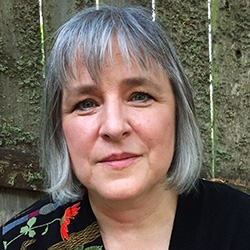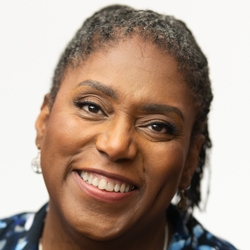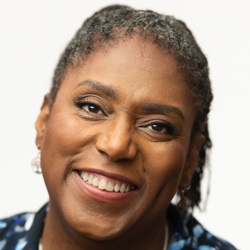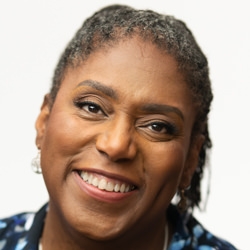

Search Results: challenge
-
- Easier and steadier access to presence, awareness and self-connection in relationships and challenging situations
- Illumination of basic Buddhist and NVC principles
- A deeper understanding of how to live the Buddhist precepts of non-harming, mindful speech and deep listening
- An introduction to useful tools for families and communities to create a culture of Nonviolent Communication
-
Trainer Tip: When we have no hope of a conversation working out, our attitude towards the situation can contribute to our lack of success. Instead, start conversations that might be challenging with the intention of success. This can shift the energy immediately toward it. This doesn’t guarantee success, but can increase its chances.
-
- Look at your old patterns with warmth – while also opening yourself up to change.
- Increase your self-compassion – and gain a solid ground to stand on.
- Become intimate with your own survival strategies – and those of the people you love.
- Support healing and connecting in your long-term relationships – even when it seems there is no resolution in sight!
-
- Understand the essential relationship between personal healing and social change — and how to communicate it to others.
- Increase your compassion capacity for different ways of being in the world.
- Get clarity about the difference between equity and equality — and how to generate equitable processes in your communities and networks.
- Obtain tools to explore the various factors that contribute to your understanding of power and privilege — including your own.
-
Trainer Tip: Even when it's tempting to coerce or match might with might, we can strive to meet our needs without negatively affecting others. Instead of convincing anyone to do it our way or to value the same things we value, we can focus on what we value: compassion among people and valuing everyone’s needs. By doing this we are actually more likely to meet our own needs and we are better able to live peacefully.
-
Trainer Tip: Sometimes the expression of our needs can sound like demands or criticism. This can make it harder for people to want to contribute to us. Today, pay attention to how you express your needs. Find ways to release the emotional charge.
-
Trainer Tip: In our effort to be heard, we often forget to listen. In fact, your need to be heard will not be met completely until you have heard how what you said affects the other person. If we want to ensure that we're heard we can ask the other person to reflect what they heard us say. And we can hear what's going on with them. It is important to remember that a dialogue is not complete until both people have been heard.
-
Robert's passion was in the spirituality of the Nonviolent Communication (NVC) process. He saw NVC both as a process that helps people connect more authentically with themselves and others, and as a spiritual practice and way of living. The worldwide NVC community mourned when Robert died in 2021. He left behind a legacy of work that emerged from a lifetime of inquiry into the intersection between spirituality and human communication.
-
We can use anger as an important signal to let us know that we perceive a threat to a universal need or value, directing our attention to something so that we can take effective action, and avoid harmful thought patterns. For example, instead of dwelling on a "should," focus on addressing unmet needs through boundaries and effective communication.
-
Roxy Manning delves into the concept of psychological safety, drawing from Amy Edmondson's definition as the shared belief among team members that the team is safe for interpersonal risk-taking. Roxy discusses the common misconception of safety within teams, where the absence of open discussions is mistaken for safety, creating an illusion of negative peace. Negative peace involves avoiding discomfort and maintaining comfort for those with structural or social power, often at the expense of others silently suffering. Roxy emphasizes the importance of differentiating between discomfort and true psychological safety, where teams can openly address challenging issues, even if it means temporary discomfort. She encourages naming and understanding these dynamics to foster a psychologically safe and inclusive team environment.
-
- Strengthen your influence and impact in your workplace using NVC
- Learn how to influence without authority
- Gain skills for dealing with challenging people
- Discover how to foster an organizational culture of empathy and respect!
-
Dear friends,
#UnlockYourAuthenticVoice
This has been on my mind lately. What does it mean to unlock my authentic voice? How do I talk about things that matter to me without creating emotional distance between myself and others? I’ve found this especially challenging after the US presidential election this month— half the voters are devastated by Donald Trump’s election, and the other half are elated. The extremes are vast. Sometimes imagining a coming-together feels hopeless.
-
Dear friends,
I greatly enjoyed my annual New Year’s Peace Meditation yesterday. It always brings together NVC enthusiasts from across the world and is one of my favorite traditions for welcoming the New Year!
How was 2024 for you? For me, it was a bumpy ride. There were moments of joy spending time with our 3-year-old grandson, mine and Kim’s first international trip together (a bonafide vacation that was void of work), and precious time with family and friends. There was also heartbreak...
-
Trainer Tip: When I am in resistance to what is happening in my life, when I'm having a very difficult time enjoying or just being with what is occurring, I like to offer up my gratitude.
-
Many of us blame other people for our feelings but our own state of needs is the true cause. In this powerful audio, Sylvia teaches you how to manage your emotions in challenging situations and demonstrates the process of Screaming in Giraffe.
-
Inspired by Marshall Rosenberg's teachings, Kathleen Macferran's self-empathy exercise offers a transformative approach for those challenging moments when you fall short of your own expectations.
-
This video with Jim and Jori Manske explores how to navigate polarizing conversations.
-
Children interpret and create meaning from everything they observe. They form a narrative about themselves and their place in the world. Roxy Manning shares how the stories of parents contribute to this narrative. Roxy shares a personal story where she, in an attempt to highlight her son's intellectual gifts, unintentionally influenced him to believe he couldn't do things on his own and wasn't smart. The impact of stories like this on a child's self-perception is long-lasting. Roxy urges us to consider the unintended messages that our words and actions may convey, as these narratives can be challenging to shift once established.
-
Join Itzel Hayward and Kathy Simon as they present two role-play scenarios showcasing diverse approaches to navigating difficult conversations. Throughout the demonstration, they underscore the significance of cultivating self-empathy and mindfulness to effectively engage in challenging dialogues. Specifically, they introduce a role-play scenario concerning affirmative action, aimed at illustrating the contrasting outcomes when utilizing or not utilizing nonviolent communication skills.
-
In this audio recording, Miki demonstrates how to stay in a dialogue when you don't trust someone's "yes," how to equalize power between people and how to allow space for others to say "no" to our requests.

Quick Links
Subscription Preferences
Stay In Touch!
Looking for ways to keep up with NVC Academy news, get special offers, free resources, or words of inspiration? Here are five ways to stay engaged:



















